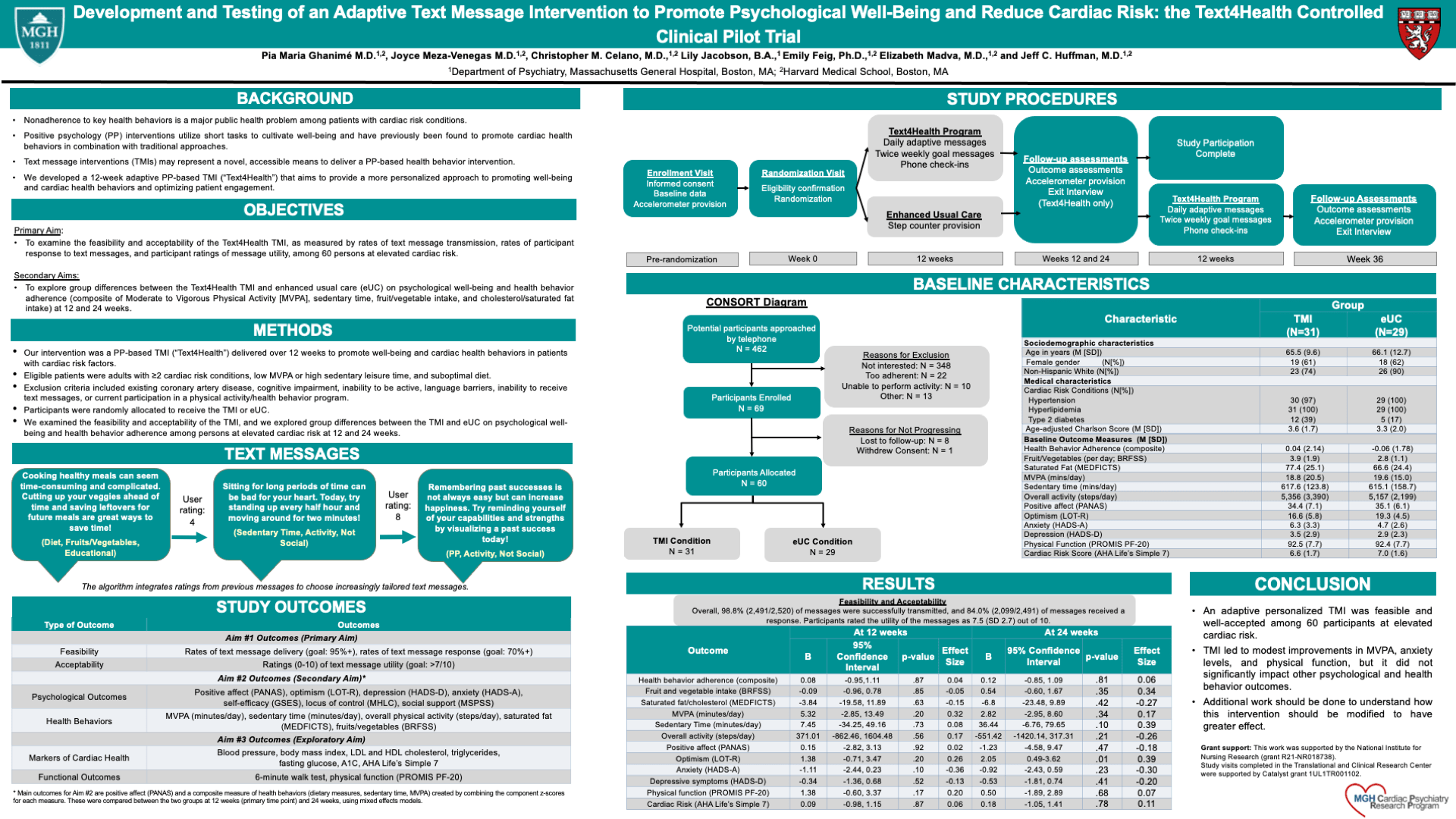Scientific Abstract
Background: Nonadherence to key health behaviors is a major public health problem among patients with cardiac risk conditions. Positive psychology (PP) interventions utilize short tasks to cultivate well-being and have been found to promote cardiac health behaviors in combination with traditional approaches. Text message interventions (TMIs) may represent a novel accessible means to deliver a PP-based health behavior intervention.
Methods: We developed a 12-week adaptive PP-based TMI (“Text4Health”) that aims to provide a more personalized approach to promoting well-being and cardiac health behaviors and optimizing patient engagement. Eligible patients were adults with ≥2 cardiac risk conditions, low Moderate to Vigorous Physical Activity (MVPA) or high sedentary leisure time, and suboptimal diet. Exclusion criteria included existing coronary artery disease, cognitive impairment, inability to be active, language barriers, inability to receive text messages, or current participation in a physical activity/health behavior program. Participants were randomly allocated to receive the TMI or enhanced usual care (eUC). We examined the feasibility and acceptability of the TMI. We also explored group differences between the TMI and eUC on psychological well-being and health behavior adherence at 12 and 24 weeks.
Results: 60 participants were recruited. 98.8% of messages were successfully transmitted and 84.0% of messages received a response. Participants rated the utility of the messages as 7.5 out of 10. In the TMI group: 1) MVPA improved at 12 and 24 weeks (B=5.32, P=0.20; B=2.82, P=0.34), 2) anxiety decreased at 12 and 24 weeks (B=-1.11, P=0.10; B=-0.92, P=0.23), and 3) physical function increased at 12 and 24 weeks (B=1.38, P=0.17; B=0.50, P=0.68), though none of these were statistically significant.
Conclusions: An adaptive personalized TMI was feasible and well-accepted among the participants. TMI led to modest improvements in MVPA, anxiety levels, and physical function, but it did not significantly impact other psychological and health behavior outcomes. Additional work should be done to understand how this intervention should be modified to have greater effect.
Search posters

